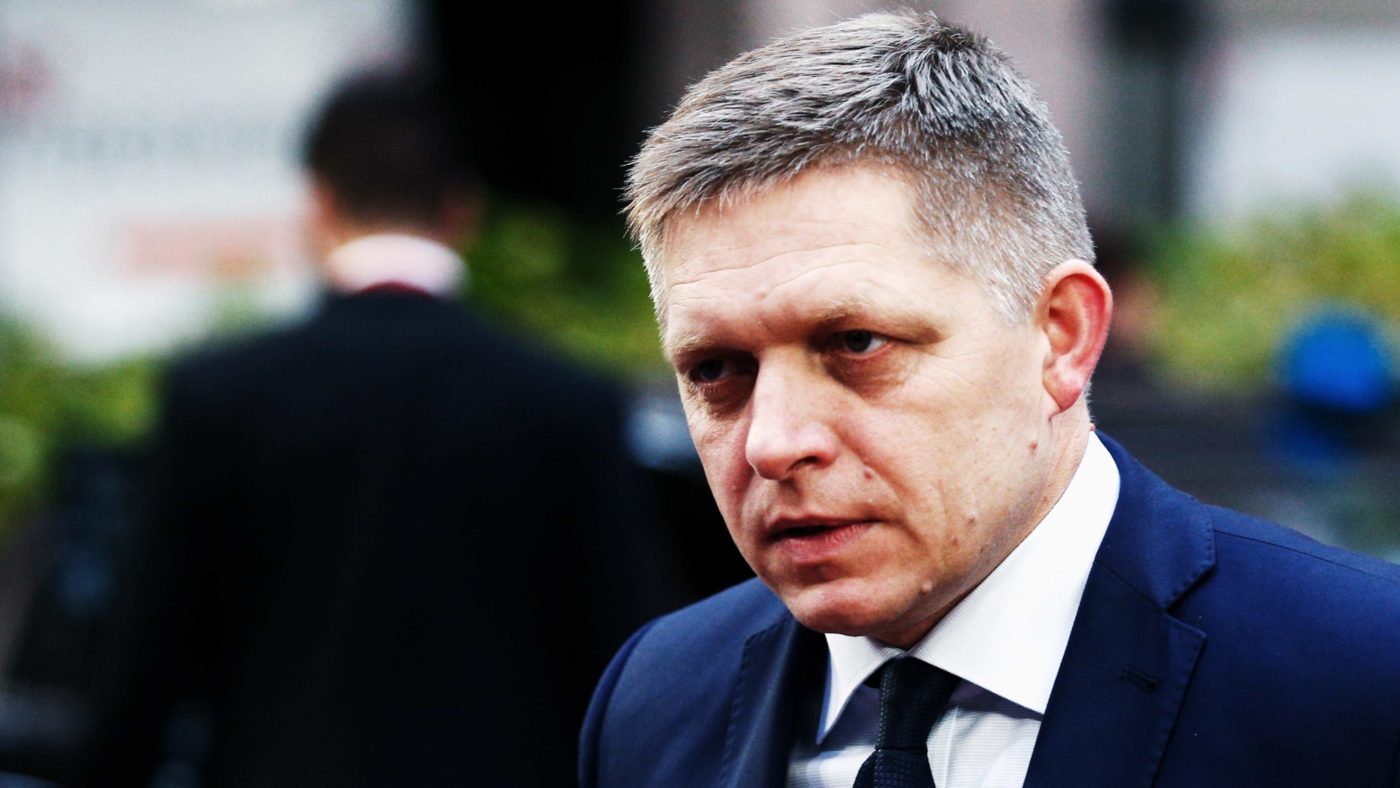It took 28 years, but the rule of law is slowly emerging in Slovakia. Two former government ministers from the Slovak National Party, an erstwhile coalition partner of the current socialist Prime Minister Robert Fico, have been found guilty of corruption.
Marián Janušek and Igor Štefanov have been sentenced to 12 years and nine years respectively. The court’s verdict marks the first time since the fall of communism that government officials have been held to account in a Central European country whose public officials are renowned for lack of transparency and accountability.
While the case might seem to be of little interest beyond Slovakia’s borders, the story highlights broader issues related to the spending of the European Structural and Cohesion Funds as well as to the difficult birth of the rule of law in ex-communist members of the European Union.
The case in question dates back to 2007, when Marián Janušek, who was in charge of the Ministry of Construction and Regional Development, awarded a contract worth 120 million euros to firms close to his party boss, Jan Slota. Janušek “advertised” the tender for mere four days on a notice board in an inaccessible passage way of a government building, thereby contravening the country’s government procurement laws, which require a far more transparent bidding process.
After the story broke, triggering a public outcry, Janušek was forced from office. His replacement, another Slovak National Party apparatchik, Igor Štefanov, then attempted to sabotage the investigation into his predecessor. Brussels, which was to pay for the tender out of the European Structural and Cohesion Funds, got involved, the contract was revoked, and Štefanov was forced out of office. Ten years later, the two men were finally found guilty of corruption. They will appeal the verdict.
Slovakia ranks 54th in the 2017 Transparency International Corruption Perception Index – lower than Rwanda, but higher than Romania. As was the case with many other ex-communist members of the EU, prior to accession, Slovakia passed a plethora of laws and regulations aimed at ensuring clean government and the transparent disbursement of the EU funds.
Political culture, alas, lagged far behind the anti-corruption legislation, which lay largely dormant and conspicuous in its non-enforcement. If anything, EU membership worsened the corruption problem that was ever present in before independence. Large sums of money from net contributors to the EU budget, such as the UK and Germany, and non-EU contributors to the EU’s financial transfer schemes, such as Norway and Switzerland, flooded poorly run ex-communist countries like Slovakia. I warned of the associated risks in a 2006 paper, “The Rise of Populist Parties in Central Europe: Big Government, Corruption, and the Threat to Liberalism.”
So, what has changed? Unlike tax policy or free trade agreements, the rule of law cannot be implemented overnight. Unless it is imposed from outside, it has to evolve incrementally. As such, a happy confluence of developments has contributed to the watershed judgement.
First, the expectations of the Slovakian people have changed. In the communist days, corruption was a way of life and, consequently, accepted as unavoidable. Younger generations, however, have been exposed to cleaner governments by working or studying abroad. They have come to expect from their government standards of transparency and accountability that they saw in the West. Second, a corrupt older generation of judges has either retired or been sidelined by a new, more professional generation. Third, economic development and the subsequent rise in the standard of living has greatly increased judges’ incomes, making them less susceptible to bribes.
Lastly, the media is freer than it was. Investigative journalists are more sophisticated than they used to be, secure in the knowledge that they will not be harmed for reporting on official misbehavior. In this respect, EU membership has been a positive. No ex-communist member state of the EU wants to be seen to facilitate the harassment of journalists. That is not to say that journalists in ex-communist countries are as inviolate as they are in mature democracies, like the UK. But the position of the media is certainly better than it was in the years immediately following the end of communism.
Is Slovakia out of the woods yet? Not by a long shot. As I have noted in a previous column, the Slovak Prime Minister is a deeply corrupt man, whose practices remain uninvestigated courtesy of his equally corrupt Minister of the Interior, Robert Kalinak.
However, that these two men at the top of the government and in charge of the police force could not thwart the court’s groundbreaking judgement against their former cabinet colleagues does qualify as progress of sorts. Let’s hope it is a harbinger of many more such rulings to come.


